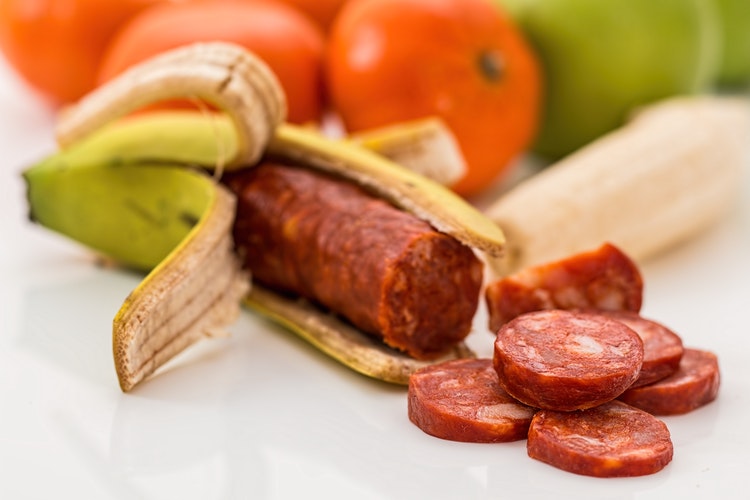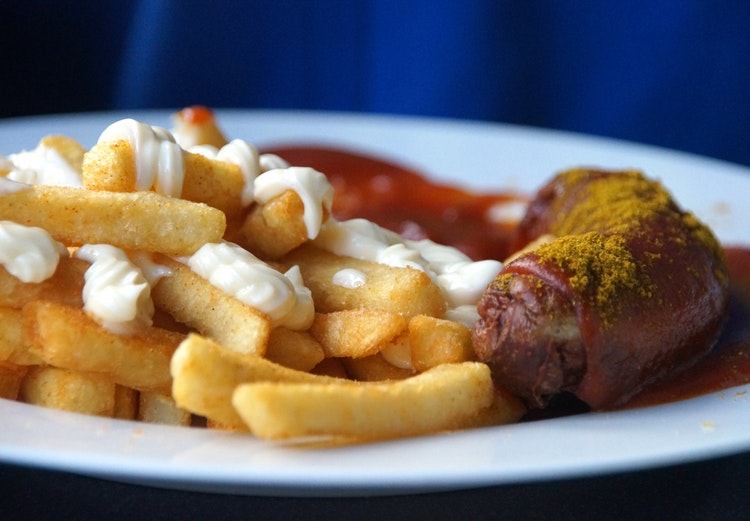Sausages and bacon are some of the favorite food of almost everyone. Aside from being cheap sources of protein, they are easier and quicker to cook. Many processed meat products are pre-cooked which means you can eat them right out of your fridge.
To keep their products safe, food industries add other bacteria-fighting procedures in meat processing. However, no matter how much extra measures are added, processed meat products are still generally regarded as unhealthy. They are linked with various diseases in many studies as they contain many dangerous chemicals not found in fresh meat.
In this article, we will discuss why processed meat is not safe for you. But first, let us define what processed meat is and how they are made.
What is Processed Meat?

Processed meat is modified fresh meat through procedures such as:
- Mincing,
- Chopping or grinding,
- Canning,
- Curing,
- Drying,
- Salting, and
- Smoking.
Food products classified as processed meats include:
- Canned meat,
- Smoked meat,
- Beef jerky and dried meat,
- Ham and cured bacon,
- Corned beef, salted and cured meat, and
- Hot dogs, sausages and salami.
How Are Processed Meat Products Made?

The procedures done in producing various types of processed meats differ from each other. So we will only be discussing the process of making hotdogs. This is to give you an overview of how processed meat products are made.
- The meat is cut into smaller pieces and added in a mixing container along with other materials such as the curing ingredients and seasonings.
- The batter, the output from the previous step, is put in a linker machine where it is coated with cellulose casings. The casings are twisted at equal points producing a long strand of hot dogs with equal sizes.
- The long strand of hotdogs is transferred to a smokehouse and cooked. The cooking process usually takes an hour.
- The links of hotdogs are transferred to a peeler machine where the cellulose coats are removed.
- The peeled hotdogs are conveyed to the packaging section where they are lined and vacuum-packed for flavor preservation.
- The final products are boxed and shipped to supermarkets via refrigerated trucks.
As refrigeration is a crucial factor in the preservation of the products, the refrigeration system in the trucks must be ensured to work without problems. Check valves are installed in these systems to prevent the backflow of refrigerants for non-problematic refrigeration. You may want to have a look at this check valve supplier.
Why Processed Meat is Not Safe For Your Health

In this section, we are going to give you reasons why processed meat is not safe.
The major reason why you should avoid processed meats is they are associated with chronic diseases. These include:
- Heart diseases,
- Hypertension,
- Stomach and bowel cancer, and
- Chronic Obstructive Pulmonary Diseases (COPD)
The evidence shown by studies regarding the likelihood of people who consume processed meat in developing these diseases is consistent and strong.
Furthermore, studies in the processed meat consumption of animals such as rats have supported this fact. Because results have shown that the risk of these rats in developing bowel cancer had increased due to their consumption.
But how can you get these disease by just eating processed meats? Because these meats contain dangerous chemical substances that may elevate the risk of chronic diseases. The four most commonly studied substances are discussed in the succeeding sections.
4 Major Cancer-Causing Substances Found in Processed Meats:
#1 Nitrite, Nitrosamines and N-Nitroso Substances
N-nitroso substances are compounds that cause cancer suspected to be liable for the majority of the negative effects of the consumption of processed meats. These substances are created from sodium nitrite added to the processed meats.
Vegetables also contain remarkably high levels of sodium nitrite and other related compounds like nitrates which are beneficial to the health.
However, nitrites in processed meat and vegetables are not the same. The widely studied nitrosamines compounds are N-nitroso substances that can develop from the nitrites in processed meats. These nitrosamines develop when the meat is exposed to high temperatures such as when grilling sausages or frying bacon.
Processed meats are the major food sources of nitrosamines including contaminated potable water, pickled foods, and tobacco smoke. Processed meat is the main dietary source of nitrosamines. Other sources include contaminated
Animal studies also indicated that nitrosamines may have played a major role in bowel cancer development in animal subjects. This is reinforced by human observational studies which indicated that nitrosamines have the possibility to increase risks of bowel and stomach cancer.
#2 Heterocyclic Amines
Heterocyclic amines, short for HCAs, also develop when meat is cooked at high temperatures, especially when grilling and frying. These are not limited to processed meats, but huge amounts are found in meat burgers, fried bacon, and sausages.
Animals can develop cancer when given high amounts of HCAs. This amount is generally much greater than the amount usually found in a human’s diet.
Nevertheless, various human observational studies indicated that consumption of well-cooked meat can increase the possibility of breast, colon and prostate cancers.
#3 Sodium Chloride
Processed meats have normally high sodium chloride (table salt) content. Although processed meats are not the only ones with high salt content, it may have a significant contribution to many people’s salt intake. Excessive consumption of salt may increase the risk of heart disease and hypertension. Specifically in people who have what is called salt-sensitive hypertension.
Furthermore, various observational studies have indicated that consuming food with high salt content may cause stomach cancer. This is backed up by studies that have shown the possibility of Helicobacter pylori growth in the stomach of people with high salt intake. This bacterium causes ulcers which can lead to stomach cancer.
#4 Polycyclic Aromatic Hydrocarbons
Smoking meat has been a famous preservation method since the dawn of time, usually combined with drying or salting. This process contributes to the development of many potentially dangerous substances such as polycyclic aromatic hydrocarbons or PAHs.
PAHs form when an organic matter is burned and are transported with smoke in the air. They gather on the surface of the meat being smoked, barbecued, roasted or grilled.
Furthermore, PAHs can form from:
- Charred or burnt meat,
- Burning charcoal or wood, and
- Dripping fat burning on a scorching surface.
For these reasons, by-products of smoked meat can contain high amounts of PAHs.
Conclusion
In this article, we have learned that processed meat products contain various chemicals that cannot be found in fresh meat. The majority of these chemicals are dangerous to health and can lead to the development of chronic diseases. Especially when large amounts of processed meat products are consumed for a long period of time. However, eating small amounts occasionally is okay. You just need to make sure that processed meat products do not dominate your daily diet. Limit consuming these kinds of food but instead, let fresh foods be the foundation of your diet.



